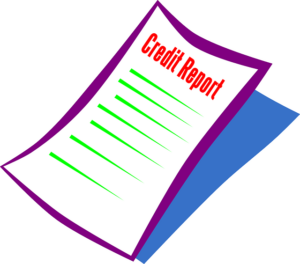Payday loans typically stay on your credit file for six years in the United States. This duration can vary depending on the credit reporting agency and local regulations, but six years is the common timeframe. During this period, the loan will appear on your credit report and may affect your credit score and borrowing ability.
- Around 12 million Americans use payday loans each year, according to recent estimates. Payday loans are popular option for many individuals facing short-term financial challenges.
- The average payday loan amount is approximately $375, with an average fee of $55 per loan.
- Research suggests that about 80% of payday loans are rolled over or renewed within two weeks.
Do Payday Loans Affect your Credit?
Yes, payday loans can have an impact on your credit report. While payday lenders often do not check your credit score before lending, they may report your repayment behavior to credit bureaus. Late or missed payments can negatively affect your credit score, making it harder to qualify for other forms of credit in the future.
Additionally, having a payday loan on your credit report may raise concerns for lenders, as it might show a lender that you are relying on short-term borrowing.
Can Payday Loans be Removed from your Credit File?
Yes, it’s possible to have payday loans removed from your credit file, but it is not always easy to do so. You can dispute inaccuracies in your credit report with the credit bureaus, but if the information is accurate, it’s challenging to remove it before the standard six-year timeframe.
However, if you believe that the payday loan was reported incorrectly or unfairly, you can file a dispute with the credit bureau and provide supporting documentation to support your claim.
In some cases, lenders may be willing to remove the loan from your credit report if you can demonstrate that it was reported in error or that you have since paid off the debt.
Can I Get a Mortgage after a Payday Loan?
Yes, you can still qualify for a mortgage after having a payday loan, but it may impact your eligibility and terms. Lenders consider various factors, including your credit score, income, debt-to-income ratio, and payment history. A history of payday loans may raise concerns for lenders, as it suggests a pattern of financial instability.
However, if you can demonstrate that you have since improved your financial situation and have a stable income, you may still be able to qualify for a mortgage.
Keep in mind that having a higher credit score and a larger down payment can improve your chances of approval and help you secure better terms on your mortgage.
What Credit Score Do I Need to Get a Payday Loan?
Having a credit score of around 500 to 560 can be sufficient to get a payday loan, depending on factors such as your income, amount of debt and affordability. A lender will take multiple factors into consideration as well as your credit score.
One of the upsides about payday loans is that they do not typically require a perfect credit score for approval. Instead, lenders may assess your income and employment status to determine your eligibility. However, having a higher credit score could potentially help you secure better terms or lower interest rates with some payday lenders.
Additionally, having a history of responsible borrowing and repayment can increase your chances of approval and may even qualify you for larger loan amounts.
Ultimately, payday loans are designed to help borrowers who are facing short-term financial challenges, regardless of their credit history.
However, it’s essential to borrow responsibly and only take out a payday loan if you can afford to repay it on time and in full. Defaulting on a payday loan can have serious consequences, including damage to your credit score and additional fees and penalties.
